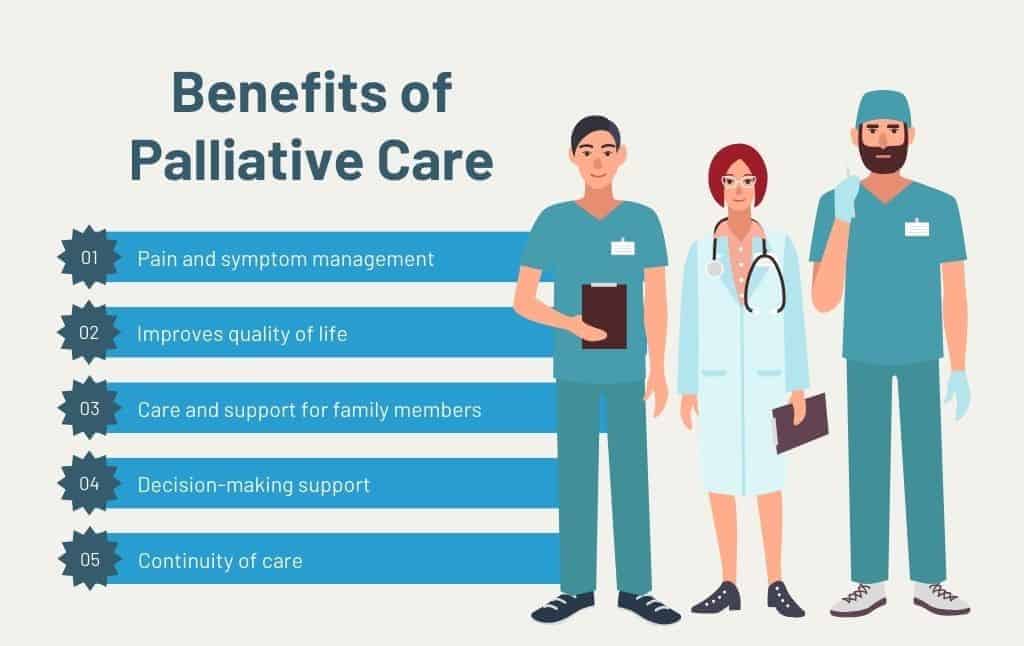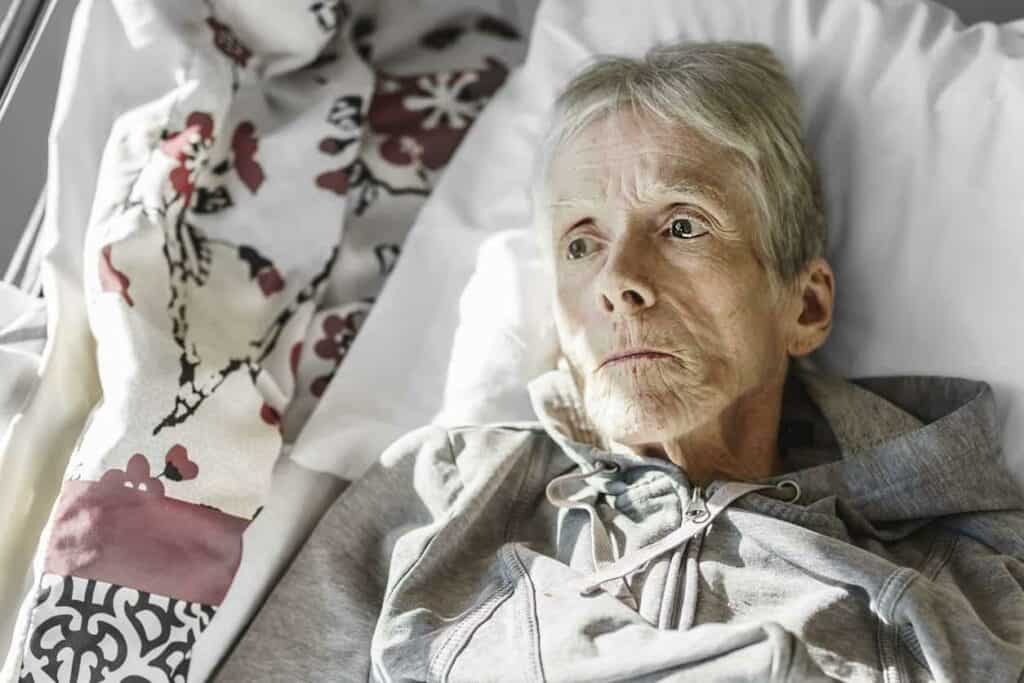
When someone we care about faces a serious illness, it’s natural to seek the best possible care and support. But what exactly is palliative care, and when does it come into play for our loved ones?
Keep reading to learn more about palliative care, and discover when this compassionate approach becomes a beacon of comfort and support for those we hold dear. This is because understanding palliative care isn’t just about medical treatment—it’s about wrapping our loved ones in holistic care and warmth during their most challenging moments.
What Is Palliative Care?
Palliative care is specialized care that focuses on the overall wellness of individuals living with chronic diseases such as cancer or heart failure. It provides pain and symptom relief, and mental, emotional, and spiritual support to these individuals, their caregivers, and family members.
The goal of palliative care is to provide comfort and improve the patient’s and their family’s quality of life while exploring treatment options.
The palliative care team comprises healthcare professionals such as doctors, nurses, social workers, trained specialists, religious heads, and nutritionists. Depending on your loved one’s needs, their care team may vary.
It’s important to note that palliative care is unique and based on individual needs and therefore may vary even among individuals with similar health conditions.
Where is Palliative Care Provided?
Palliative care can be provided in a variety of settings including:
- Hospitals
- Nursing homes
- Assisted living homes
- Outpatient palliative care clinics
- Your home or your loved one’s home.

When Does My Loved One Need It?
Palliative care can be offered to individuals adults, older adults, and children facing life-threatening health conditions such as:
- Cancer
- Lung disease
- Kidney failure
- Heart disease
- Dementia
- End-stage liver disease
- Stroke
- Parkison disease, and other serious illnesses.
Your loved one can get palliative care at any stage during their illness. This can be immediately after a diagnosis is made or at some point later on.
However, it’s advised that palliative care is offered early, as this can help patients plan for what they want, prevent or limit the stress that comes with chronic illnesses, and lead a better quality of life.
Benefits of Palliative Care

The hallmark of palliative care is the holistic care and comfort patients receive while exploring treatment options.
Below are more benefits of palliative care, and why it should be considered if your loved one is currently facing a serious illness.
Pain and symptom management
Palliative care can help provide expert management of pain and other distressing symptoms of the illness such as anxiety, constipation, inability to sleep, nausea, and loss of appetite. This can help individuals live more comfortably with reduced suffering.
Improves quality of life
Palliative care doesn’t only focus on symptom management, it also seeks to provide holistic care including emotional and spiritual support for the individual. This holistic focus leads to an improved quality of life compared to traditional care.

Care and support for family members
Family members can be negatively impacted when a loved one is going through a life-threatening condition. Palliative care includes guidance, assistance, and counseling for family members during this trying time.
Decision-making support
There is usually lots of decision to make about your loved one’s care, treatment options, and advanced life planning. Your palliative care team can provide much-needed support and guidance to ensure you and your loved one make informed decisions.
Continuity of care
Palliative care seamlessly integrates with other medical treatments, ensuring a consistent approach to care that aligns with the patient’s needs and desires. Additionally, transitioning to hospice care is seamless as well.
What Type of Support Does Palliative Care Offer?
Palliative care can offer much-needed support in the following areas other than pain and symptom management:
Education and Advocacy
Your palliative team can help you and your loved one understand their condition better, including future prognosis. This understanding will enable a choice of treatment options that align with your values, goals, and preferences.
Your palliative care team also relays your preferences to health professionals, so you can receive care on your terms.
Social support
Having a reliable network of friends, family, healthcare professionals, and community resources can make your loved one’s condition bearable, and give them a positive outlook on life.

Your palliative care team can help ease the burdens of caregiving on family caregiving by organizing caregiving responsibilities among available family members.
They can also provide training, guidance, and counseling to help family members cope with the physical and emotional aspects that come from having a loved one in such a life-threatening situation.
Spiritual support
Depending on your spiritual needs, palliative care may also include spiritual support which can include regular visits from your spiritual leader. Your spiritual needs and preferences may also affect your care type and treatment options.
Financial, Legal, and end-of-life support
Your care team can connect you to financial and legal support to relieve related burdens that can accompany serious illnesses. These can include:
- Costs: exploring treatment options can be expensive, your palliative care team may help you understand how you can pay for care, and if you can benefit from public or private health insurance that you may be eligible for.
- Living arrangements: support can include planning for where you’ll live and receive treatment during your illness. This could be at home, in the hospital, a nursing home, or an out-patient palliative care center.
- Advanced planning: This is necessary for when you can no longer make these decisions. A palliative care team member will talk to you about your wishes for your call. This information will be used to help you develop a will, an advance directive, and a healthcare power of attorney.
How Does Palliative Care Differ From Hospice Care?
Sometimes people tend to use palliative and hospice care interchangeably, however, they are distinct care options for people facing serious health conditions.
The major difference between palliative and hospice care is when the care is offered. Hospice care also known as end-of-life care focuses on symptom relief and comfort for an individual with a terminal illness that is approaching the end of life.
At this point, the illness is no longer responding to treatment, and hence, treatment options have stopped. Often, the individual has a life expectancy of six (6) months or less to live.

Palliative care on the other hand can be offered at any stage of the illness while exploring treatment options.
Individuals may begin with palliative care, and transition to hospice care when treatment options fail. However, in some cases, individuals in hospice can go on to live longer than 6 months. It’s also possible to be in hospice, discontinue hospice care, and then resume curative treatment for your condition.
Here’s a table showing key differences and similarities between palliative care and hospice care.
| Palliative Care | Hospice Care | |
|---|---|---|
| When is it offered? | At any point in the illness. It can begin as soon as a diagnosis is made | Towards the end of life when treatment options are not working, and the individual has 6 months or less to live. |
| Will symptoms be relieved | Yes, as much as possible | Yes, as much as possible |
| Can I still pursue treatment options? | Yes, you can while still receiving comfort care. | No. At this point, treatment is unresponsive and discontinued. Comfort care is prioritized. |
| Where can care be provided? | At home, palliative care centers, nursing homes, assisted living homes, and hospitals. | At home, hospice care centers, nursing homes, assisted living homes, and hospitals. |
| When am I eligible for care? | Applicable regardless of life expectancy | Requires a terminal illness diagnosis |
| How do I pay for care? | May be covered by insurance or out-of-pocket | Often covered by Medicare, Medicaid, or insurance |
| What is the goal of care? | Improve the quality of life for seriously ill patients | Enhance the quality of life for terminally ill patients |
How to Pay for Palliative Care

Wondering how your loved one can pay for care? Below are some options.
Medicare
Medicare may cover some palliative care costs for qualified beneficiaries.
For instance, Medicare Part B (Medical Insurance) which provides health care coverage to people 65+ and those with certain disabilities, may help with the costs of durable medical equipment, hospital beds, and wheelchairs required for palliative care treatment and support.
If your loved one has Medicare Part D, this may help pay for prescription drugs that are part of the palliative care treatment plan.
Additionally, palliative care costs may be covered by the Medicare Special Needs Plans (SNPs) if your loved one qualifies. This is usually for individuals with chronic health conditions such as heart disease, end-stage liver disease, and certain neurological conditions.
To learn more about Medicare coverage, you can call 800-MEDICARE (800-633-4227) or chat with someone online.
Medicaid
Medicaid is a government-funded health insurance that provides health coverage for low-income individuals. Medicaid may cover some palliative care costs such as medical equipment and supplies, caregiver services, physical therapy, and other necessary medical services.
Eligibility and coverage varies from state to state. It’s best to speak with an official in the state where your loved one resides to learn more about coverage.
Private Insurance
If your loved one has long-term care insurance, it may help cover the cost of palliative care. Be sure to find out the extent of coverage and what may not be covered.
Veterans benefits
If your family member is a veteran and is enrolled in the VHA Standard Medical Benefits Package, they could qualify for palliative care based on their clinical requirements. It’s important to be aware that there might be copayments associated with receiving palliative care services
To learn more you can talk to your loved one’s VA social worker about palliative care.
Other ways your loved one can pay for care include:
- Retirement and pension funds
- IRA
- Savings account
- 401(k)
- HSA
If private funds are limited, your loved one may be eligible for charity funding organized by their palliative care program. Ask your palliative care team about whether this type of assistance is available to cover costs.
How to Get Palliative Care

The first step to getting palliative care is to talk to your loved one’s primary doctor for a referral. Your doctor may be able to recommend you to some local offerings. You’re not giving up your relationship with your doctor by doing this, as your palliative care team can work closely with your primary doctor.
Additionally, you can use the resources below to find a palliative care service near you.
- Getpalliativecare.org: You can enter your address, ZIP Code, or city and state to find palliative service. You can also check where you want the services provided either at home, a clinic, a hospital, or a nursing home.
- Palliativedoctors.org: They can pair your loved one with palliative care experts for the best care.
- National Hospice and Palliative Care Organization: You can find palliative care providers from this organization’s database. Other than helping you locate a provider, you can also access educational programs and materials for patients and families.
- Google search: A Google search of keywords such as “palliative care providers near me” and “palliative care provides in my area” can bring up a good number of out-patient palliative care centers, nursing homes, or assisted living homes that offer palliative care services. Be sure to research the provider, ask about their services, and look up reviews online.
Get Palliative Care From Compassionate Caregivers at Amy’s Eden
Watching a loved one deal with a chronic condition can be challenging, coordinating and providing their care may be too much to juggle with your other responsibilities.
At Amy’s Eden, we can alleviate some care burdens by providing compassionate comfort care for your loved one to help them improve their quality of life while exploring treatment options.
Our palliative caregivers are trained and vetted, and care can be provided in the home of your loved one or in our assisted homes. Our care plans are designed to be unique, and tailored to the needs and preferences of your loved one.
To learn more about our palliative and end-of-life care services, do not hesitate to contact us today. We are ready to be your extra pair of hands.




